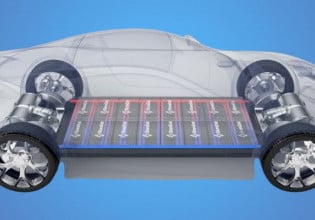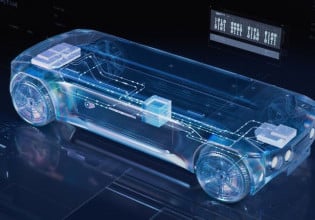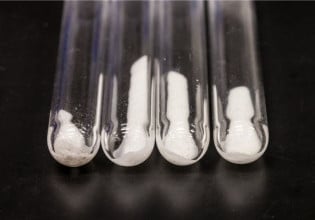Ultra-Thin Stackable Solid-State Li-ions for Wearables and IoT Sensors
Thin Film Electronics ASA (Thinfilm) announced its new solid-state lithium battery (SSLB) technology that combines advanced energy cell design with proprietary materials and manufacturing innovation to produce thin and flexible batteries that can power safer and more capable wearable devices and connected sensors.
Samples of the company's stackable milliamp-hour battery cells, claiming the highest volumetric energy density in their class, are scheduled for the second quarter of 2020. Thinfilm SSLBs leverage fundamental materials and manufacturing advantages compared to other solid-state devices, enabling more powerful, durable, and reliable batteries.
Thinfilm's unique manufacturing capabilities on ultra-thin, large-area, flexible substrates enable SSLBs that exceed the performance of other solutions on the market. Thinfilm's state-of-the-art platform is based on its comprehensive roll-to-roll fabrication line - located in the heart of Silicon Valley - and extensive patents and knowhow in flexible electronics manufacturing.
These capabilities enable a new class of batteries that are thinner and more flexible than coin cells, last longer than other SSLBs, and improve safety compared to lithium-ion.
"Thinfilm's solid-state lithium battery strategy builds upon our company's established manufacturing expertise to produce a new class of batteries for innovative applications. These filings illustrate Thinfilm's commitment to innovation throughout the energy storage space, including core battery technology, cell manufacturing, and cell packaging and stacking," said Kevin Barber, CEO of Thinfilm. "Our technical team is well positioned to continue innovation to enable new classes of wearable devices and connected sensors."
Additionally, the Company has confirmed that, despite certain disruptions related to the COVID-19 pandemic, Thinfilm's technical team has adapted plans to ensure the continuity of its development efforts and mitigate potential delays. The Company therefore believes that it can continue to deliver samples of its SSLB products at the end of Q2, as previously communicated.






